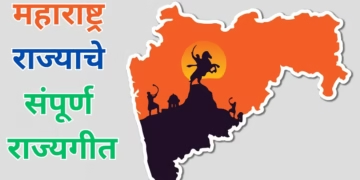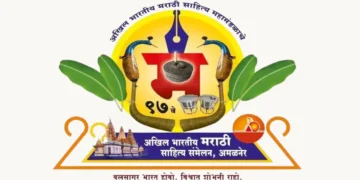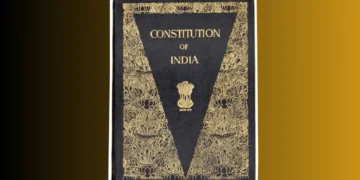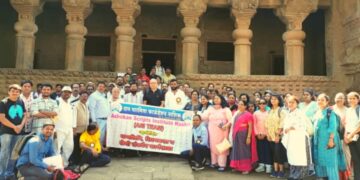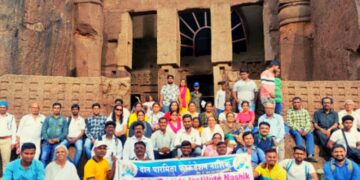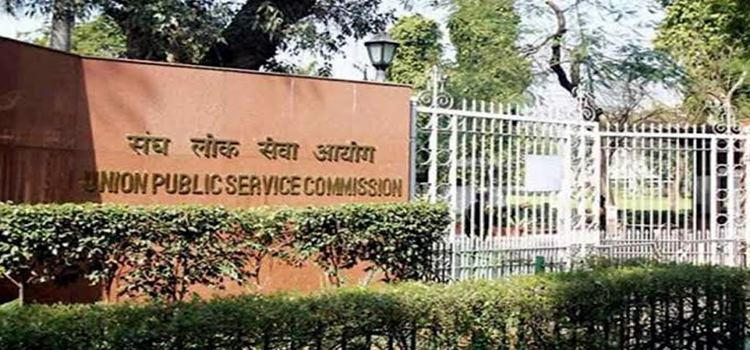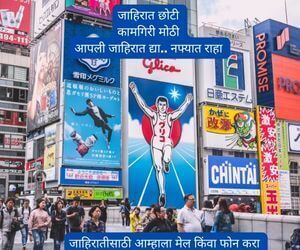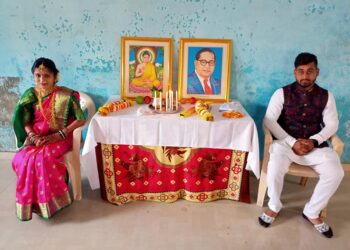युपीएससी म्हणजे युनियन पब्लिक सर्व्हिस कमिशन (संघ लोकसेवा आयोग). नागरी प्रशासनाची जबाबदारी सांभाळण्यासाठी आवश्यक सक्षम उमेदवारांची निवड करणारी स्पर्धात्मक स्वरूपाची परीक्षा म्हणजे नागरी सेवा परीक्षा होय. ही अत्यंत महत्त्वाची व प्रतिष्ठेची परीक्षा उत्तीर्ण झाल्यावर देशाच्या विविध सेवांमध्ये म्हणजे भारतीय परराष्ट्र सेवा, भारतीय पोलीस सेवा यांसारख्या सुमारे 36 सेवांची दालने तरुणांसाठी खुली होऊ शकतात. प्रशासनातील सनदी सेवा पदांची निवड करण्यासाठी संघ लोकसेवा आयोगाद्वारे दरवर्षी किमान 16 प्रकारच्या स्पर्धात्मक परीक्षांचे आयोजन केले जाते. ‘आयएएस’ची परीक्षा म्हणजे महत्त्वाकांक्षी व हुशार विद्यार्थ्यांना विविध कार्यक्षेत्राची दालने उघडणारे महाद्वार आहे..
युपीएससी द्वारे दरवर्षी अनेक परीक्षा घेतल्या जातात त्या खालील प्रमाणे..
१)Civil Services Examination (CSE)
२)Engineering Services Exam (IES)
३)Indian Forest Services Exam (IFoS)
४)Indian Economic Service and Indian Statistical Service Examination (IES/ISS)
५)Assistant Provident Fund Commissioners
६)Special Class Railway Apprentices Exam (SCRA)
७)Combined Defence Services Exam (CDS)
८)National Defence Academy and Naval Academy Exam (NDA and NA)
९)Combined Medical Services Examination (CMSE)
१०)Combined Geo-Scientist and Geologist Examination
११)Central Armed Police Forces Exam
या लेखामध्ये मी तुम्हाला Civil Services Examination (CSE) ज्याला काहीजण IAS ची सुद्धा परीक्षा म्हणतात..याबद्दल माहिती देणार आहे..
ही परीक्षा देऊन तुम्ही खालील उच्च पदांवर विराजमान होऊन देशाची/समाजाची सेवा करू शकता..यामध्ये ३ प्रकारच्या सेवा असतात..
१)All India Civil Services -यामध्ये
a.Indian Administrative Service or IAS
b.Indian Foreign Service or IFS
c.Indian Police Service or IPS…या all India Level च्या ३ Post असतात..
२)Group A Services or Central Services -यामध्ये
1.Indian P & T Accounts & Finance Service
2.Indian Audit and Accounts Service
3.Indian Revenue Service (Customs and Central Excise)
4.Indian Defence Accounts Service
5.Indian Revenue Service (I.T.) or IRS
6.Indian Ordnance Factories Service (Assistant Works Manager, Administration)
7.Indian Postal Service
8.Indian Civil Accounts Service
9.Indian Railway Traffic Service
10.Indian Railway Accounts Service
11.Indian Railway Personnel Service
12.Indian Railway Protection Force (Assistant Security Commissioner)
13.Indian Defence Estates Service
14.Indian Information Service (Junior Grade)
15.Indian Trade Service, Group ‘A’ (Gr. III)
16.Indian Corporate Law Service* यामध्ये वरील १६ Group A च्या post असतात..
३)Group B Services or State Services -यामध्ये
Armed Forces Headquarters Civil
Service (Section Officer’s Grade)
Delhi, Andaman & Nicobar Islands, Lakshadweep, Daman & Diu and Dadra & Nagar Haveli Civil Service
Delhi, Andaman & Nicobar Islands, Lakshadweep, Daman & Diu and Dadra & Nagar Haveli Police Service
Pondicherry Civil Service
Pondicherry Police Service
यामध्ये या ५ Group B च्या Post असतात..
आता आपण Cse exam देण्यासाठी शिक्षण,वय व Attempt काय आहे हे बघूया..
Educational Qualification
-कोणत्याही UGC मान्यता प्राप्त विद्यापीठाची पदवी लागते..
Age -कोणताही २१ वर्ष पूर्ण होणारा विद्यार्थी ही परीक्षा देऊ शकतो..The appearing candidate should be at least 21 years in age and not more than 30 years.
Maximum three years relaxation for OBC candidates and five years relaxation for SC/ST. candidates.
Attempts –
For General – 4
For OBC – 7
SC/ST – No limit
आता आपण ही परीक्षा कशाप्रकारे होते हे बघूया…
या परीक्षेत पूर्वपरीक्षा, मुख्य परीक्षा आणि मुलाखत (अर्थात व्यक्तिमत्त्व चाचणी) अशा तीन वेगळ्या टप्प्यांचा समावेश असतो..
पूर्वपरीक्षा
यातील पूर्वपरीक्षा वस्तुनिष्ठ स्वरूपाची, बहुपर्यायी प्रश्नांवर आधारित आणि नकारात्मक गुणपद्धत असलेली आहे..पूर्वपरीक्षेचा हा प्राथमिक टप्पा ‘पात्रता चाचणी’ स्वरूपाचा आहे. म्हणजेच या परीक्षेत प्राप्त होणारे गुण या टप्प्यापुरतेच ग्राह्य़ धरले जातात, यात पात्र ठरलेल्या विद्यार्थ्यांचा परीक्षेचा पुढील प्रवास सुरू होतो. याची Add फेब्रुवारी या महिन्यात https://www.upsc.gov.in/ (https://www.upsc.gov.in/) या website वर येते..याचा पेपर जून या महिन्यात असतो.. या परीक्षेचा निकाल आॅगस्टच्या मध्याला लागतो..या टप्प्यामध्ये २ पेपर असतात ..
१) सामान्य अध्ययन
गुण-२००
प्रश्न संख्या -१००
वेळ -२ तास
अभ्यासक्रम :-
Current events of national and international importance
History of India and Indian National Movement
Indian and World Geography – Physical, Social, Economic Geography of India and the World
Indian Polity and Governance – Constitution, Political System, Panchayati Raj, Public Policy, Rights Issues, etc
Economic and Social Development – Sustainable Development, Poverty, Inclusion, Demographics, Social Sector initiatives, etc
General issues on Environmental Ecology, Bio-diversity and Climate Change
General Science
२) CSAT
गुण-२००
प्रश्न संख्या -१८०
वेळ -२ तास
हा फक्त पात्रता प्रकारचा असतो यामध्ये पास होण्यासाठी ३३% गुण आवश्यक असतात..
अभ्यासक्रम :-
Comprehension
Interpersonal skills including communication skills
Logical reasoning and analytical ability
Decision-making and problem-solving
General mental ability
Basic numeracy (numbers and their relations, orders of magnitude, etc.) (Class X level), Data interpretation (charts, graphs, tables, data sufficiency etc. – Class X level)
आता आपण मुख्य परिक्षेबद्दल बोलूया…
मुख्य परीक्षा
मुख्य परीक्षेत एकूण नऊ पेपर्स असतात..त्यात दोन पेपर फक्त क्वालिफाय करावे लागतात तर सात पेपर हे रँकिंगचे असतात..
निवडलेल्या उमेदवाराला मुलाखतीसाठी बोलवलं जातं. तिथे त्यांचं व्यक्तिमत्त्व परीक्षण होतं..ते ९ पेपर खालील प्रमाणे असतात..
1 Paper A – 300 मार्कांचा अनिवार्य इंग्रजी असतो..
2 Paper B – हा पेपर सुद्धा 300 मार्कांचा असतो..हा पेपर उमेदवारानं निवडलेल्या भारतीय भाषेत असतो.. वरील दोन्ही पेपर हे फक्त पात्रता प्रकारचे असतात याचे गुण पुढे गणल्या जात नाहीत.पण कधी या पेपर मध्ये qualify न झाल्यास बाकीचे पेपर तपासल्या जात नाही..
3 Paper I – हा 250 मार्कांचा असतो..यामध्ये २ निबंध लिहावे लागतात..
4 Paper II- हा 250 मार्कांचा पेपर असतो. यात सामान्य अध्ययन I ( भारतीय संस्कृती, इतिहास आणि जगाचा भूगोल )इत्यादी विषयांचा समावेश असतो.
5 Paper III- सामान्य अध्ययन II ( सरकार, घटना, राज्यव्यवस्था, सामाजिक न्याय आणि आंतरराष्ट्रीय संबंध ), हा 250 मार्कांचा पेपर असतो.
6 Paper IV- सामान्य अध्ययन III ( आर्थिक विकास, पर्यावरण, सुरक्षा, जैव विविधता) , हा 250 गुणांचा पेपर असतो.
7 Paper V- सामान्य अध्ययन IV ( नैतिकता, अखंडता आणि योग्यता ) हे 250 गुणांचा पेपर असतो..
8 Papers VI, VII- हे २ वैकल्पिक विषयांचे पेपर असतात..हे २ पेपर २५०-२५० गुणांचे असतात..
सामान्य अध्ययन १ ते ४ ची -हिंदी व इंग्रजी मध्ये प्रश्नपत्रिका छापलेली असते…
२)वैकल्पिक विषय १ आणि २ -हिंदी व इंग्रजी मध्ये प्रश्नपत्रिका छापलेली असते…(जर तुम्ही मराठी साहित्य विषय निवडला असेल तर त्याचे दोन्ही पेपर फक्त मराठी मध्ये असतात.
३)निबंध -हिंदी व इंग्रजी मध्ये प्रश्नपत्रिका छापलेली असते…
४)अनिवार्य इंग्रजी -फक्त इंग्रजी मध्ये प्रश्न पत्रिका छापलेली असते…
५)अनिवार्य भाषेचा (मराठी,हिंदी, उर्दू इत्यादी) तुम्ही जी भाषा निवडली आहे फक्त त्याच भाषेत प्रश्न पत्रिका छापलेली असते.
GS I ते IV चा सम्पूर्ण अभ्यासक्रम*
Gs l :-
Indian Culture – Salient aspects of Art Forms, Literature and Architecture from ancient to modern times
Modern Indian History from about the middle of the eighteenth century until the present- significant events, personalities, issues.
The Freedom Struggle — its various stages and important contributors/contributions from different parts of the country
Post-independence Consolidation and Reorganization within the country
History of the World will include events from the 18th century such as Industrial Revolution, world wars, Redrawal of National Boundaries, Colonization, Decolonization, political philosophies like Communism, Capitalism, Socialism etc.— their forms and effect on the society
Salient features of Indian Society, Diversity of India
Role of Women and Women’s Organization, Population and Associated Issues, Poverty and Developmental issues, Urbanization, their problems and their remedies
Effects of Globalization on Indian society
Social Empowerment, Communalism, Regionalism & Secularism
Salient features of World’s Physical Geography
Distribution of Key Natural Resources across the world (including South Asia and the Indian sub-continent)
factors responsible for the location of primary, secondary, and tertiary sector industries in various parts of the world (including India)
Important Geophysical phenomena such as earthquakes, Tsunami, Volcanic activity, cyclones etc
geographical features and their location-changes in critical geographical features (including water-bodies and ice-caps) and in flora and fauna and the effects of such changes
Gs ll :-
Indian Constitution—Historical Underpinnings, Evolution, Features, Amendments, Significant Provisions and Basic Structure
Functions and Responsibilities of the Union and the States, Issues and Challenges Pertaining to the Federal Structure, Devolution of Powers and Finances up to Local Levels and Challenges Therein
Separation of Powers between various organs Dispute Redressal Mechanisms and Institutions
Comparison of the Indian Constitutional Scheme with that of Other Countries
Parliament and State Legislatures—Structure, Functioning, Conduct of Business, Powers & Privileges and Issues Arising out of these
Structure, Organization and Functioning of the Executive and the Judiciary—Ministries and Departments of the Government; Pressure Groups and Formal/Informal Associations and their Role in the Polity
Salient Features of the Representation of People’s Act
Appointment to various Constitutional Posts, Powers, Functions and Responsibilities of various Constitutional Bodies
Statutory, Regulatory and various Quasi-judicial Bodies
Government Policies and Interventions for Development in various sectors and issues arising out of their Design and Implementation.
Development Processes and the Development Industry — the Role of NGOs, SHGs, various groups and associations, donors, charities, institutional and other stakeholders
Welfare Schemes for Vulnerable Sections of the population by the Centre and States and the Performance of these Schemes; Mechanisms, Laws, Institutions and Bodies constituted for the Protection and Betterment of these Vulnerable Sections
Issues Relating to Development and Management of Social Sector/Services relating to Health, Education, Human Resources
Issues relating to Poverty and Hunger
Important Aspects of Governance, Transparency and Accountability, E-governance- applications, models, successes, limitations, and potential; Citizens Charters, Transparency & Accountability and institutional and other measures
Role of Civil Services in a Democracy
India and its Neighborhood- Relations.
Bilateral, Regional and Global Groupings and Agreements involving India and/or affecting India’s interests
Effect of Policies and Politics of Developed and Developing Countries on India’s interests, Indian Diaspora
Important International institutions, agencies and fora – their Structure, Mandate
Gs lll :-
Indian Economy and issues relating to Planning, Mobilization of Resources, Growth, Development and Employment
Inclusive Growth and issues arising from it
Government Budgeting
Major Crops – Cropping Patterns in various parts of the country, – Different Types of Irrigation and Irrigation Systems; Storage, Transport and Marketing of Agricultural Produce and Issues and Related Constraints; E-technology in the aid of farmers
Issues related to Direct and Indirect Farm Subsidies and Minimum Support Prices; Public Distribution System – Objectives, Functioning, Limitations, Revamping; Issues of Buffer Stocks and Food Security; Technology Missions; Economics of Animal-Rearing
Food Processing and Related Industries in India- Scope’ and Significance, Location, Upstream and Downstream Requirements, Supply Chain Management
Land Reforms in India
Effects of Liberalization on the Economy, Changes in Industrial Policy and their Effects on Industrial Growth
Infrastructure: Energy, Ports, Roads, Airports, Railways etc
Investment Models
Science and Technology- Developments and their Applications and Effects in Everyday Life
Achievements of Indians in Science & Technology; Indigenization of Technology and Developing New Technology
Awareness in the fields of IT, Space, Computers, Robotics, Nano-technology, Bio-technology and issues relating to Intellectual Property Rights
Conservation, Environmental Pollution and Degradation, Environmental Impact Assessment
Disaster and Disaster Management
Linkages between Development and Spread of Extremism
Role of External State and Non-state Actors in creating challenges to Internal Security
Challenges to Internal Security through Communication Networks, Role of Media and Social Networking Sites in Internal Security Challenges, Basics of Cyber Security; Money-Laundering and its prevention
Security Challenges and Their Management in Border Areas – Linkages of Organized Crime with Terrorism
Various Security Forces and Agencies and their Mandate
Gs IV :-
Ethics and Human Interface: Essence, Determinants and Consequences of Ethics in – Human Actions; Dimensions of Ethics; Ethics – in Private and Public Relationships. Human Values – Lessons from the Lives and Teachings of Great Leaders, Reformers and Administrators; Role of Family Society and Educational Institutions in Inculcating Values
Attitude: Content, Structure, Function; its Influence and Relation with Thought and Behaviour; Moral and Political Attitudes; Social Influence and Persuasion
Aptitude and Foundational Values for Civil Service, Integrity, Impartiality and Non-partisanship, Objectivity, Dedication to Public Service, Empathy, Tolerance and Compassion towards the weaker-sections.
Emotional Intelligence-Concepts, and their Utilities and Application in Administration and Governance
Contributions of Moral Thinkers and Philosophers from India and World
Public/Civil Service Values and Ethics in Public Administration: Status and Problems; Ethical Concerns and Dilemmas in Government and Private Institutions; Laws, Rules, Regulations and Conscience as Sources of Ethical Guidance; Accountability and Ethical Governance; Strengthening of Ethical and Moral Values in Governance; Ethical Issues in International Relations and Funding; Corporate Governance
Probity in Governance: Concept of Public Service; Philosophical Basis of Governance and Probity; Information Sharing and Transparency in Government, Right to Information, Codes of Ethics, Codes of Conduct, Citizen’s Charters, Work Culture, Quality of Service Delivery, Utilization of Public Funds, Challenges of Corruption
Case Studies on the above issues
खालील पैकी कोणताही १ वैकल्पिक विषय निवडू शकता..त्या प्रत्येक विषयाचा वेगवेगळा अभ्यासक्रम आहे जो येथे लिहणे शक्य नाही त्यामुळे तुम्ही Upsc च्या website वर जाऊन चेक करू शकता…
वैकल्पिक विषय
Animal Husbandry and Veterinary Science
Anthropology
Botany
Chemistry
Civil Engineering
Commerce and
Accountancy
Economics
Electrical Engineering
Geography
Geology
History
Law
Management
Mathematics
Mechanical Engineering
Medical Science
Philosophy
Physics
Political Science and International Relations
Psychology
Public Administration
Sociology
Statistics
Zoology
Literature of anyone the following language:
Assamese, Bengali, Bodo, Dogri, Gujarati, Hindi, Kannada, Kashmiri, Konkani, Maithili, Malayalam, Manipuri, Marathi, Nepali, Oriya, Punjabi, Sanskrit, Santhali, Sindhi, Tamil, Telugu, Urdu, English.
Agriculture
मुख्य परीक्षेतील वरील ७ पेपर हे एकूण १७५० गुणांचे असतात.. या लिखित पेपर्सचे एकूण मार्क 1750 व Personality Test ( मुलाखत ) 275 मार्क एकूण मार्क – 2025 होतात व यामधूनच अंतिम यादी प्रकाशित होत असते..त्या त्या वर्षातील लागलेल्या Cut Off नुसार Select झालेल्या अधिकाऱ्यांना पोस्ट मिळत असतात..
मुलाखत
लेखी परीक्षेतून मुलाखतीस पात्र ठरणाऱ्या विद्यार्थ्यांची मुलाखत नवी दिल्ली येथील ढोलपूर हाऊस येथे यू.पी.एस.सी. द्वारे घेतली जाते. मुलाखतीसाठी विद्यार्थ्यांने मुख्य परीक्षेच्या वेळी स्वत:बद्दलची यु.पी.एस.सी.ला दिलेली माहिती Detailed Application form (DAF) मध्ये असते. तसेच चालू घडामोडींचा विचारही मुलाखतीसाठी महत्त्वाचा असतो. खरं तर ही ज्ञानासाठी नसून व्यक्तिमत्त्वाची चाचणी असते. कारण विद्यार्थ्याने पूर्व व मुख्य परीक्षा उत्तीर्ण करून ज्ञानाची परीक्षा दिलेली असते..वरी सांगितल्या प्रमाणे ही परीक्षा २७५ मार्काची होते व मुख्य परीक्षेचे १७५० मार्क सुद्धा ग्राह्य धरले जाते
परदेशात शिक्षण घ्यायचा विचार आहे का? मग ही पोस्ट वाचा
जागल्याभारत वरील बातम्या/लेख शेअर करून इतर लोकांपर्यंत पोहोचण्यास आम्हाला मदत करा.मित्रांना सांगा.
(आपल्या @jaaglyabharat या टेलिग्राम चॅनेलवर सहभागी व्हा,ताज्या अपडेट्स मिळवा,मित्रांना सांगा)










